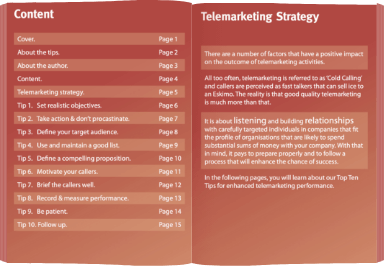Yesterday I attended a social media conference in London. Check out the conversations on Twitter using #smwdna
The upshot of the day for me is that social media cannot and should not be ignored by even the smallest companies. In fact, the smaller you are the easier it is to manage and control in many ways. Virgin Atlantic and Dell presented. Imagine what it must be like for them to have to manage and respond in the disparate elements of the social media world.
As part of our lead generation and business development services, social media is increasingly playing a role and clients are asking us to help them generate sales opportunities through social media.
So what were the key elements I took away and learned?
I have summarised them below.
There are several key elements to consider
-
-
- Understand your customer profile. Where do they go in social media land? What do they look at? Who do they look to for influence in their sector?
- What are they talking about online and what are they saying about you?
- Who are the key social media influencers in your marketplace / in the customer marketplace that you need to engage with?
- What is your share of conversations versus your competitors? Are people saying stuff about you? Is it positive?
- What words (keywords) are they using to chat about things relevant to you?
- Get used to customers talking about you and deal with it. Social media gives them a voice. Customers’ expectations of service magnifies with social media and they are quick to diss you if you don’t deliver.
- Employees need to be empowered and educated to deal with the customer on social media.
- Provide a basis and possibly a forum for customers to talk to each other. Once you understand your customer, engage with them and allow your team to engage. Be aware, they are talking to each other about you anyway!
-
High-level thinking
The younger generation doesn’t use email anymore. They don’t even use the word. Typically, they will say that they will ‘inbox’ you or post something on your wall. We need to recognise these people are emerging into the workplace and consuming stuff. We, therefore, have to be ready to play in their game. They see an email address only as a gateway to ‘access’ services because they need an email to do so
A story. Social media enables us to look at intention and not history. History tells us what happened and is only as good as your data. Intention tells us what the customer wants to want to do. The example was a great story of a car salesman in the USA. He sold green pick-ups. An old lady came in and asked to buy a white one. He persuaded her to go for the green but internally he was frustrated that the company kept sending him only green pick-ups. Every time a customer came in, he had to use his sales skills to sell green pick-ups rather than white for which he got a lot of requests. So what did the company do? It ordered more green pick-ups since they saw from the statistics that this dealership sold a lot of them. Social media allows us to assess intention and this is powerful! We are in the era of Mobile, Social, Visual and Virtual! The relationship is the new currency and attention is a scarce resource!
Some interesting stats:
-
-
- One-third of people whose job it is to research things use social media every day for their job
- There are 200 apps downloaded every second
- By 2015, there will be 1m video mins uploaded every second onto the web
- 18.1m people followed LADY Gaga LAST YEAR
- Facebook is now over 800m users of which over 300m on mobile
- There are over 2.4bn social media accounts
- Mobile data traffic last year was 3x the size of the internet traffic
- Smartphone and tablet sales have already outpaced notebooks and PC’s
- Cisco’s CEO started doing video blogs for the company. They started to use social media for internal communications and have seen a productivity gain of 26% and employee retention of 15%.
- Virgin Atlantic use social media in a customer service context and saw a reduction in call centre volume.
- A recent survey amongst key influencers established that 87% use Twitter as part of online PR and 82% use Facebook
- 53% of world-class companies constantly monitor fan pages to see what customers want
- 43% of global organisations use social media to inform their strategic plan
-






